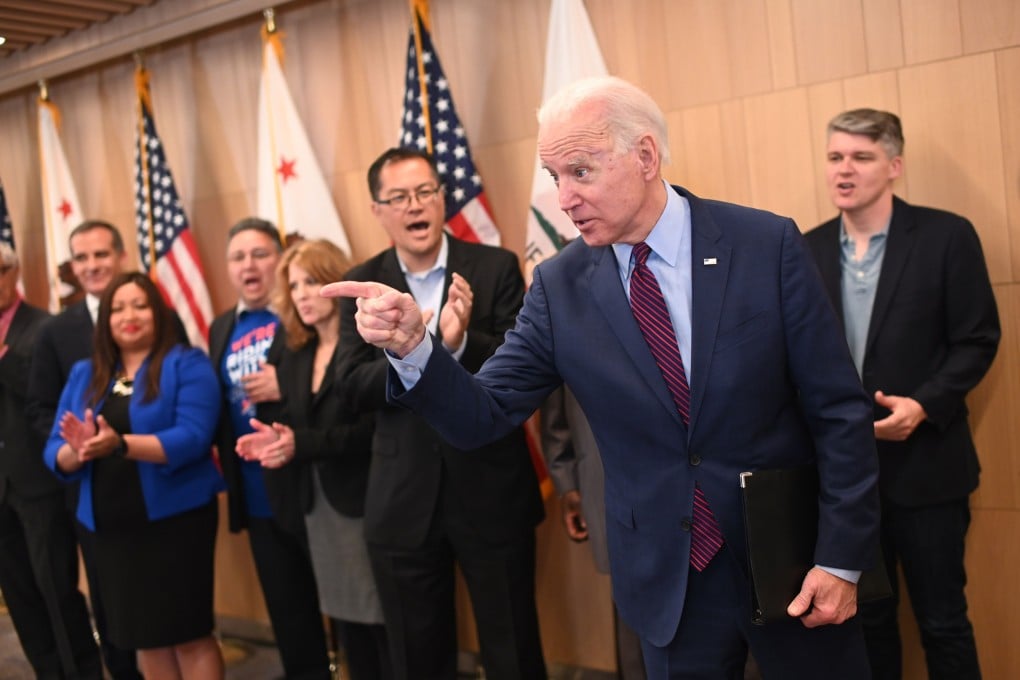Advertisement
Opinion | Why a Joe Biden nomination in the US presidential race is unlikely to reassure China
- The former US vice-president now looks to be the strongest contender for the Democratic nomination after his Super Tuesday victories
- But even if he goes on to beat Trump, a return to the Obama-era China policy of tempering competition with cooperation seems unlikely
Reading Time:4 minutes
Why you can trust SCMP

Americans eagerly followed the poll results from the “Super Tuesday” Democratic primaries, where 14 states allocated delegates that will decide which Democratic candidate will challenge President Donald Trump in the general election this November. American elections have historically focused on domestic issues close to voters’ hearts, not foreign policy.
This election cycle appears no different, which is likely to reassure China’s leadership but, undoubtedly, America-watchers in Beijing are closely following the candidates, seeking to deduce their positions and penchants. Their job this week just got easier.
Until Tuesday, the race had been close between the large field of Democratic candidates, with the two highest-profile candidates, former vice-president Joe Biden stumbling in early contests, and Bernie Sanders looking strong at the outset.
Advertisement
But with Michael Bloomberg announcing his candidacy and employing a radical strategy of skipping the first four primary contests in February and waiting until Super Tuesday where he would flood internet and traditional media markets with advertising, there was no certainty which candidate would come out on top on Wednesday morning.

Advertisement
Bloomberg, who reportedly spent about US$500 million on advertising in the 14 Super Tuesday states, failed to win a single one, capturing only the territory of American Samoa. Biden emerged from the crowded field, winning 10 of the 14 contests, including the delegate-rich states of Texas, North Carolina and Virginia.
Advertisement
Select Voice
Select Speed
1.00x
